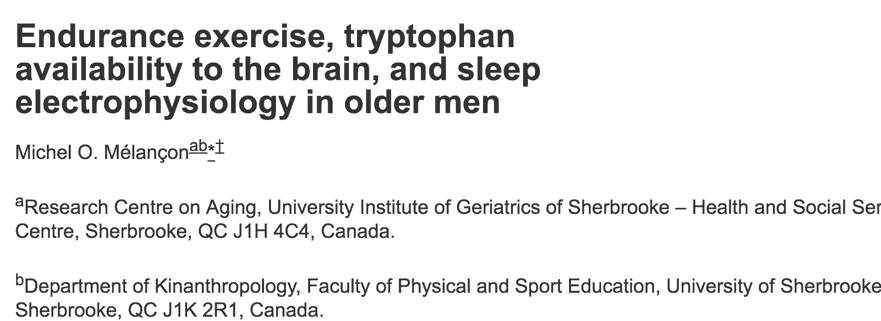
This is a fascinating study today because it ties into very important anti-aging, fitness and sex topics– Serotonin, and exercise.
Serotonin is an important hormone that is almost entirely produced in the gut.
It is a primary hormone in the gut that causes the gut to contract and transport food.
Low serotonin means you’re going to be constipated.
But high serotonin also is bad because serotonin is tied to the stress hormones.
Too much serotonin actually causes physical and mental problems.
This is why people enduring high stress may often suffer from bouts of irritable bowel and other forms of distress.
Because scientists discovered that drugs such as Prozac and Zoloft prevent the symptoms of stress, they decided that these mysterious drugs must act on brain serotonin, so they called them serotonin selective serotonin reuptake inhibitors.
But there is really no evidence that these anti-depressant anti-anxiety drugs work by raising serotonin in the brain, or that that is their primary mechanism.
In fact, there is much evidence that depression and problems in the brain are not due to insufficient serotonin, but instead are due to forms of inflammation.
And so what you may want to do is lower serotonin levels in the brain and the gut.
So with that in mind, let’s focus on this current study.
 In the study, they took 19 men around 64 years old, and they had them exercise while the researchers observed all men’s vital signs and blood work in the lab on a continuing basis during the length of the study.
In the study, they took 19 men around 64 years old, and they had them exercise while the researchers observed all men’s vital signs and blood work in the lab on a continuing basis during the length of the study.
Here is what they monitored:
(i) dual-energy X-ray absorptiometry (body composition);
(ii) peak O2 consumption, ventilatory threshold, and respiratory compensation
point (cardiopulmonary testing);(iii) blood withdrawals immediately before, during, and after exercise for analysis of
glucose, lactate, ammonia, free fatty acids (FFA), total proteins, albumin, prolactin, valine, leucine, isoleucine, adiponectin, leptin, free and total Trp, and calculated variable: branched-chain amino acids (BCAA); and(iv) sleep electrophysiology (wake, stage 1, stage 2, stages 3+4 or slow-wave sleep (SWS), stage 5 or rapid eye movements, movement time, leg movements during sleep, apneas, hypopneas, and derivative variables).
That’s a pretty complete list, in fact, it’s an amazing list.
And here’s what they found.
Exercise increases free fatty acids in the blood.
This is not a great surprise. But let me tell you what it means.
The best way to get insulin resistance and then perhaps diabetes is to have free fatty acids building up in the blood.
When you exercise, your body secretes large amounts of free fatty acids in the blood.
This can cause temporary insulin resistance even in healthy people.
It may also cause type II diabetes in the long run, but who knows?
Am I saying that exercise causes diabetes? No, of course not.
But the results of intense exercise are free fatty acids in the blood, and these do in fact cause insulin resistance. No question.
Exercise increases serotonin in the brain.
Acute exercise increased free Trp/BCAA ratio by more than 100% of that at rest and remained elevated post-exercise
The brain turns tryptophan into serotonin.
To avoid having too much serotonin, the body works to block tryptophan being converted into serotonin.
One way that the body does this is with BCAAs, or branched-chain amino acids, which are effective at blocking the tryptophan from entering the brain, and turning into serotonin.
This study found that acute exercise raises brain serotonin levels.
I say this because when the ratio of tryptophan is much higher within the Trp/BCAA ratio, serotonin is going to be much higher.
I personally am a fan of lower brain serotonin as I feel a lot better.
For this reason, I often eat foods that are rich in branched-chain amino acids before exercise and afterwards.
Another finding of the study was how exercise impacts prolactin.
After 1 hour of exercise, prolactin was higher than that at rest and was positively associated with free Trp/BCAA.
The last thing I want is higher prolactin levels.
Prolactin is mostly known for its role with lactation, but what most people don’t know is that is also part of our metabolism.
And higher prolactin levels negatively impact fat metabolism.
There are various supplements and foods that can lower prolactin levels, such as vitamin B6.
But the higher prolactin levels are a negative effect of acute exercise.
Of course, the study confirmed one of the benefits of exercise.
Sleep quality was improved after exercise.
The sleep quality was better after exercise, but the effect did not last.
So if the men skipped exercise one day, their sleep quality was not improved that night.
Constant, frequent activity within your limits may be best.
One of the other findings of the study is those men who were good at exercise and enjoyed it had less elevated levels of prolactin and less elevated levels of serotonin in their brains.
The effects were worse for exercise that was very strenuous for the given fitness level of the man.
I am a huge fan of being active and I try to be active all the time.
And exercise is fine if you enjoy the exercise.
But there is still no evidence that high exercise levels let people live longer.
There is ample evidence among people that are very old, that they do not and never have done formal exercise programs.
They maintain a high activity level, but they did little or no working out.
Citations
Endurance exercise, tryptophan availability to the brain, and sleep electrophysiology in older men
http://www.nrcresearchpress.com/doi/abs/10.1139/apnm-2014-0504#.VwKMtBIrJE5
Click for more information on Endurance exercise, for information on Men’s Health, or for more on how to stay fit for a long time.
